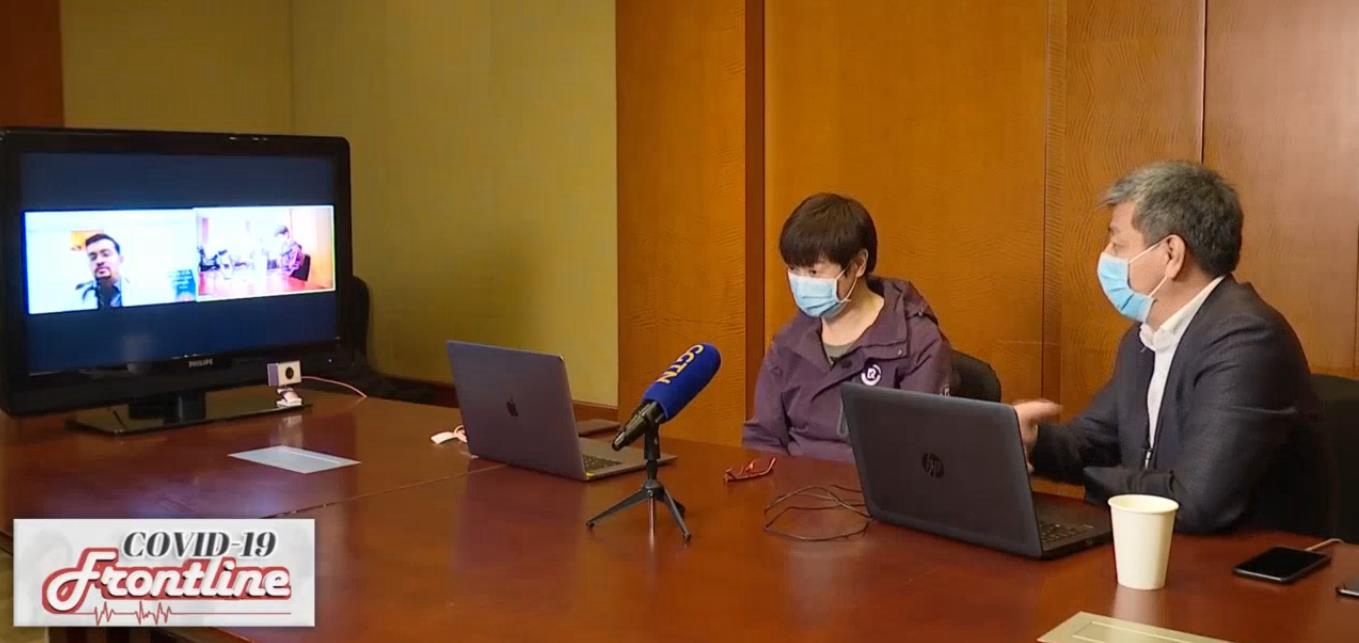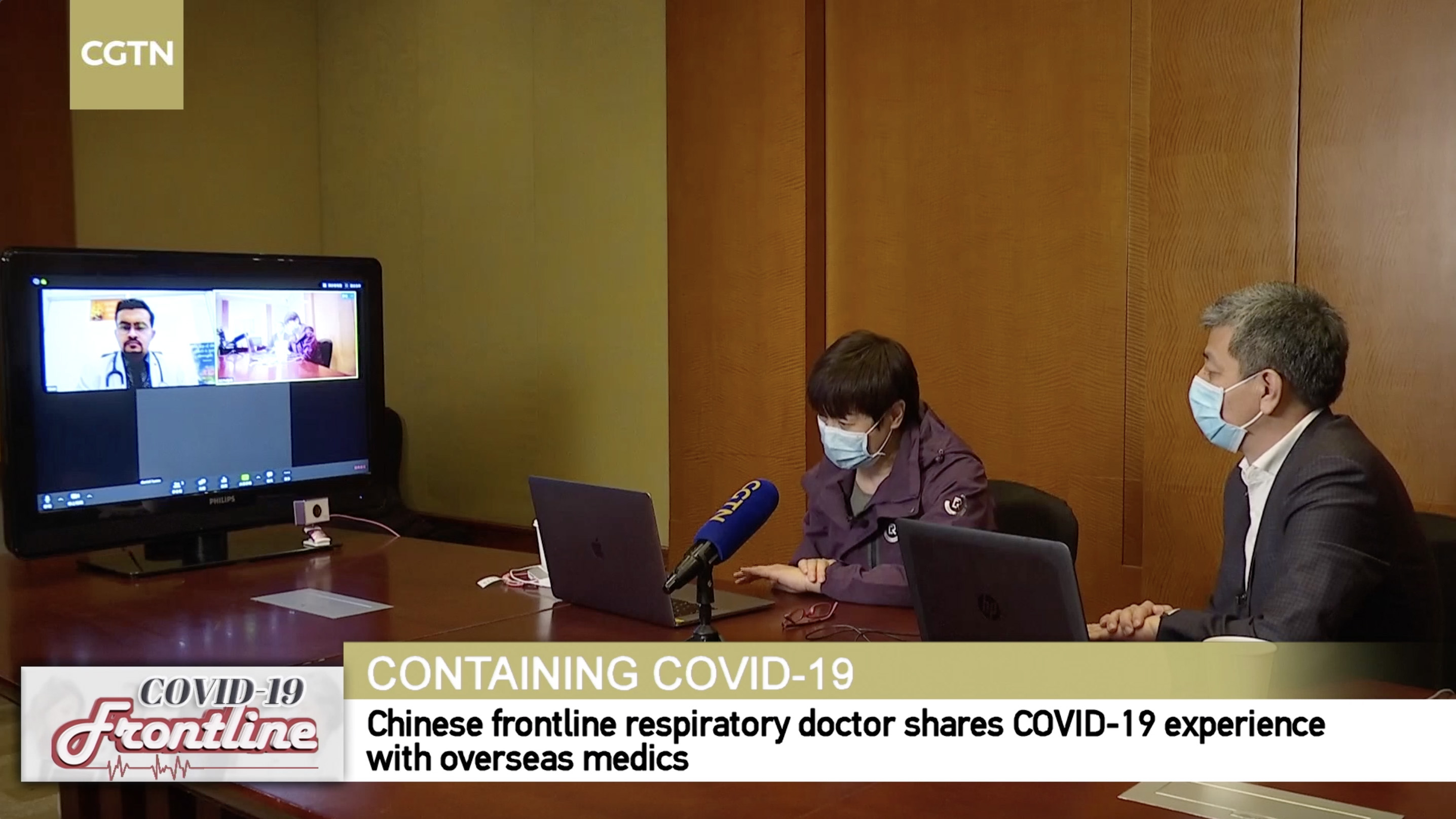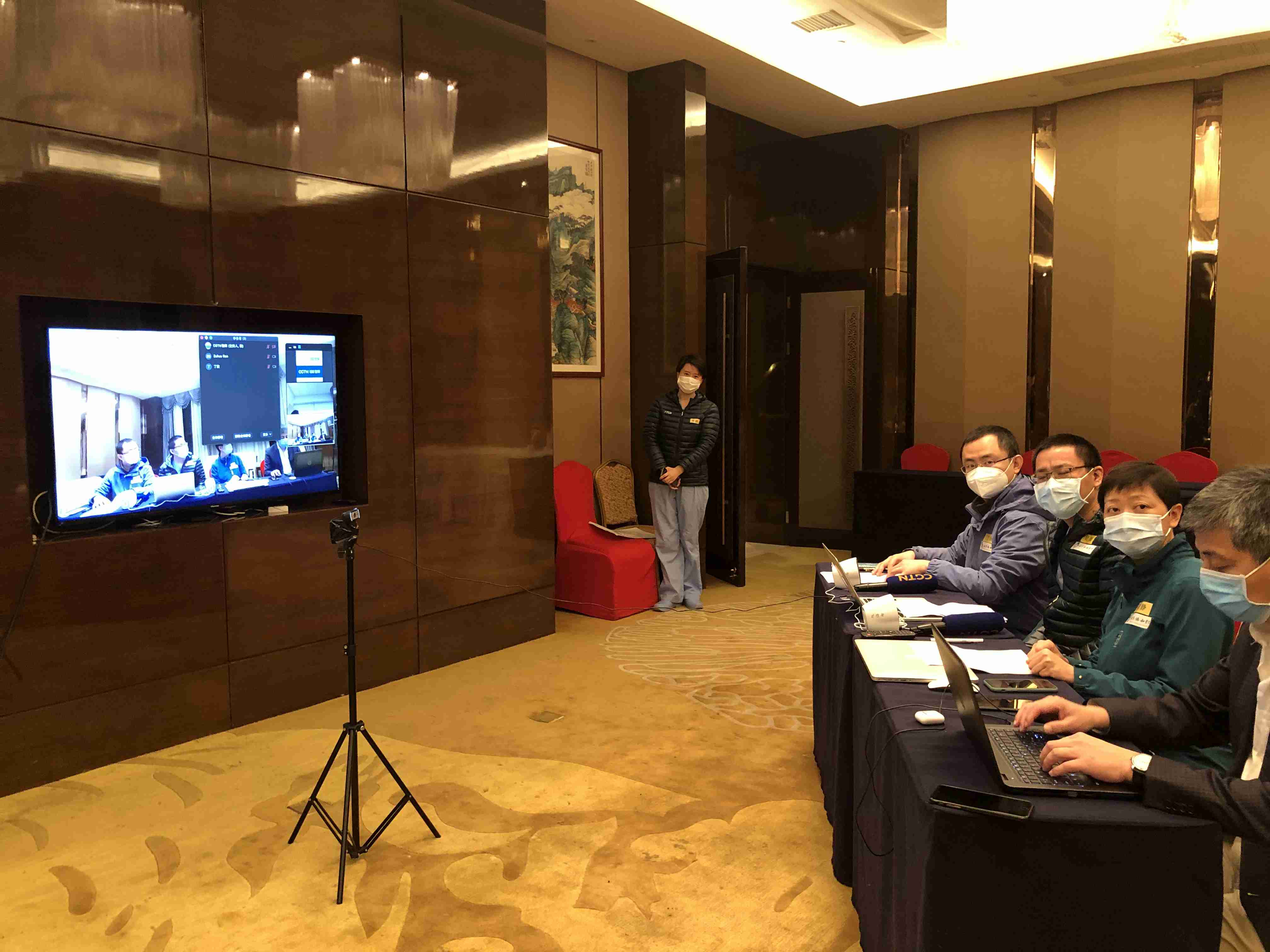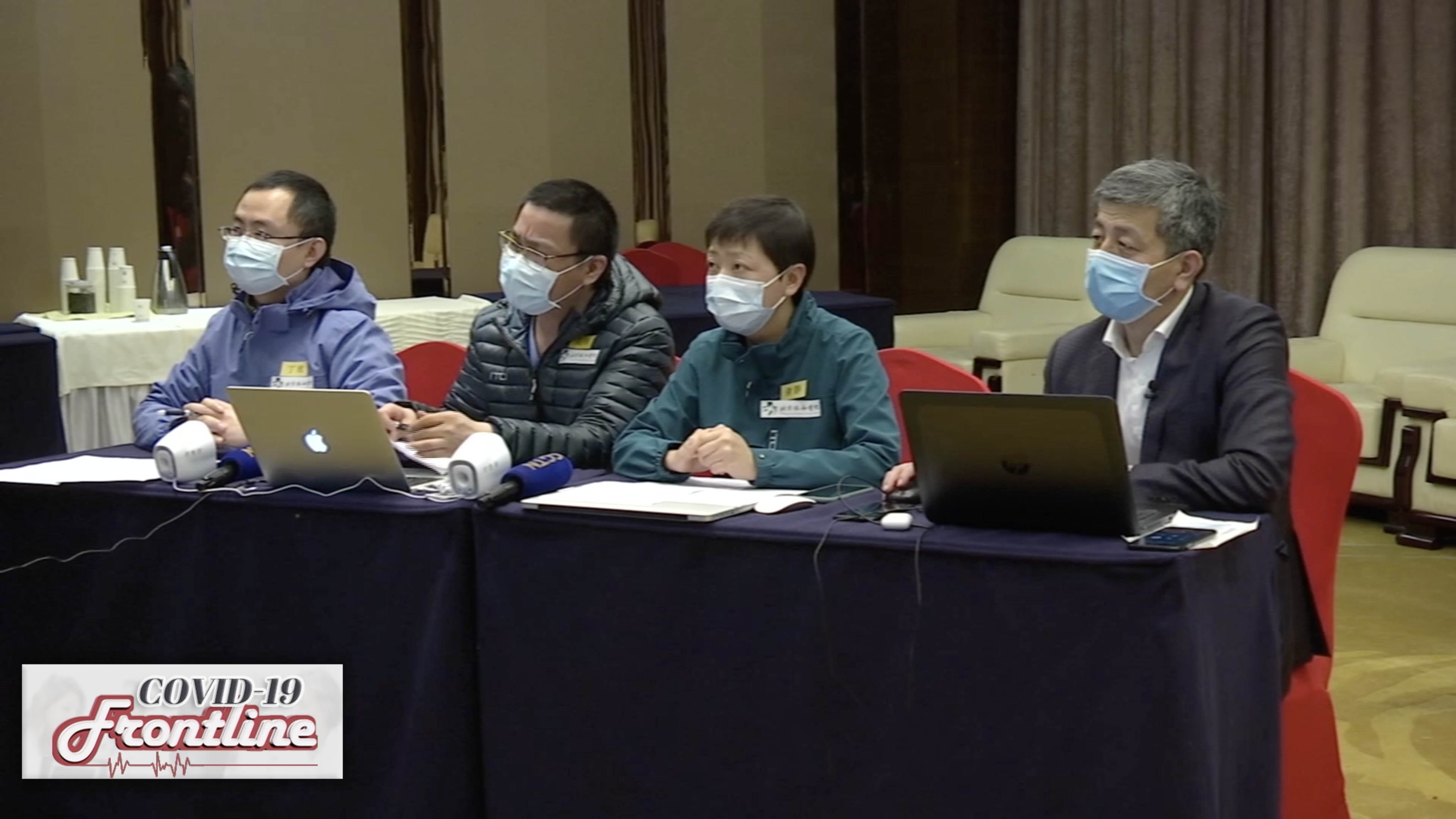Editor's Note: On March 12, 2020, the World Health Organization declared COVID-19 a pandemic, and as of Tuesday, over 154 countries have confirmed 197,139 cases. On CGTN's live program "COVID-19 Frontline," we invited medical workers and experts from China's epicenter Wuhan and from all over the world to share their experiences and take questions from social media, in the hope of providing more information for those who are battling against the pandemic.
Doctors around the globe are battling the fast-spreading COVID-19 pandemic. Although many patients show little or no symptoms, the medical systems of many countries are facing high fatality rates.
This week on CGTN's live program "COVID-19 Frontline," several doctors who have been working in the intensive care units (ICU) in Wuhan City, Hubei Province, talk about their experiences treating critically ill patients.
Most of them have stayed in Wuhan for more than a month.
Supportive care is important

Li Shengqing, a respiratory specialist at Shanghai's Huashan Hospital (L) and CGTN reporter Xu Zhaoqun attend a video conference with Samrat Shah of Nairobi's Mediheal Hospital. /CGTN
Li Shengqing, a respiratory specialist at Shanghai's Huashan Hospital (L) and CGTN reporter Xu Zhaoqun attend a video conference with Samrat Shah of Nairobi's Mediheal Hospital. /CGTN
Li Shengqing, a respiratory specialist at Huashan Hospital of Fudan University in Shanghai, has been working in the ICU of Wuhan Tongji Hospital, where 72 critical patients are still receiving treatment.
During a conference call with Samrat Shah, medical director and consultant physician at Nairobi's Mediheal Hospital, and Daniel R. Lucey, adjunct professor of medicine and infectious diseases at Georgetown University Medical Center in the U.S., Li discussed the situation in her ICU.
07:54

For critically ill patients, the intubation rate is 81 percent, according to Li, and the mortality rate is 64 percent. In Li's units, 50 patients have had their intubation withdrawn and three have had their ECMO withdrawn; 10 patients have been discharged from the ICU.
Li said there are no specific drugs to treat COVID-19 at the moment. The main treatments they use include: Immunological modulation, multiorgan life support and some anti-fibrosis therapy.
Li explained that supportive care is very important in terms of treating critically ill patients.
She also shared several anti-fibrosis drugs with Dr. Lucey, which they have found quite effective in shortening the duration of the patients' hospitalization.
While taking questions from Facebook users, Li said it is very important to quarantine diagnosed patients in hospitals to protect those who have not been infected.
Three main reasons critically ill patients die

Peking Union Medical College Hospital doctors attend a livestream. /CGTN
Peking Union Medical College Hospital doctors attend a livestream. /CGTN
On Tuesday's program, three doctors from Peking Union Medical College Hospital – Wu Wei, Xie Jing and Ding Xin – shared their experience with six Canadian doctors. The three Chinese doctors have stayed in Wuhan for about six weeks.
Dr. Wu said septic shock, respiratory failure and cardiovascular complications are the three main reasons patients die.
While talking to Matthew Pellan Cheng, director of the infectious disease treatment group at Canada's McGill University Health Center, Wu said there are biomarkers that could be used to predict which patients may become critically ill as their disease progresses.
07:27

Wu said that as a cardiology doctor, he studied 77 patients from the ICU, and that high sensitivity in cardiac troponin is one of the markers that could lead to all-cause death and cardiovascular death. But he added that further investigation is required to tell some slight differences from case to case.
Peter Goldberg, chief of critical care at McGill University Health Center, asked about the duration of mechanical ventilation for recovering patients.
Wu said that it takes about two weeks from showing symptoms to intubation, and it usually takes 10 days to two weeks from intubation to discharge of the ventilation.
The doctors also took some questions from social media users, and warned everyone to take self-protection seriously, and remain isolated as much as possible.
In the later programs, more doctors and experts on the frontline in Wuhan will join in to share their experience with their peers from the world. And for those who have questions or confusions, you can also pose your questions with CGTN using #MyOpinionOnCOVID19 on Facebook.